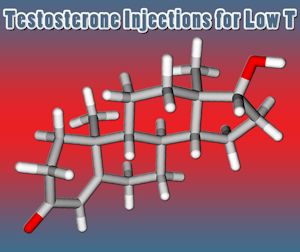Introduction
Bodybuilding, a popular sport and fitness regimen among American males, often involves rigorous training and dietary modifications aimed at enhancing muscle mass and physical appearance. While the benefits of bodybuilding, such as improved strength and aesthetics, are well-recognized, there is growing concern about its potential impact on cardiovascular health. In this article, we delve into the relationship between bodybuilding and heart disease, offering insights from a cardiologist's perspective.
The Cardiovascular Demands of Bodybuilding
Bodybuilding requires intense physical exertion, which places significant demands on the cardiovascular system. During heavy lifting, the heart must work harder to pump blood to the muscles, leading to increased heart rate and blood pressure. While this can be beneficial for cardiovascular fitness in moderation, excessive strain may lead to adverse effects over time.
Anabolic Steroids and Heart Health
One of the most concerning aspects of bodybuilding is the use of anabolic steroids. These synthetic hormones are often used to accelerate muscle growth and enhance performance. However, they come with serious cardiovascular risks. Steroids can lead to an increase in low-density lipoprotein (LDL) cholesterol, often referred to as "bad" cholesterol, and a decrease in high-density lipoprotein (HDL) cholesterol, known as "good" cholesterol. This imbalance can contribute to the development of atherosclerosis, a condition characterized by the buildup of plaques in the arteries, which increases the risk of heart disease.
Dietary Considerations and Heart Disease
Bodybuilders often adhere to strict dietary regimens that may include high protein intake and, in some cases, excessive consumption of saturated fats. While protein is essential for muscle repair and growth, an imbalanced diet can have negative implications for heart health. Diets high in saturated fats can elevate cholesterol levels, further increasing the risk of cardiovascular disease. Additionally, the use of supplements, some of which may contain undisclosed ingredients, can pose additional risks to heart health.
The Role of Hydration and Electrolyte Balance
Intense workouts can lead to significant fluid loss through sweat, which can disrupt electrolyte balance. Electrolytes such as potassium and sodium are crucial for maintaining proper heart function. Dehydration and electrolyte imbalances can lead to arrhythmias and other cardiac issues, particularly during strenuous exercise. It is essential for bodybuilders to maintain adequate hydration and monitor their electrolyte levels to mitigate these risks.
Long-Term Effects of Intense Training
Chronic intense training can lead to changes in the heart's structure and function, a condition known as athlete's heart. While some adaptations, such as increased heart size, can be beneficial, others may increase the risk of arrhythmias and other heart problems. It is crucial for bodybuilders to balance their training intensity with adequate rest and recovery to prevent long-term cardiovascular damage.
Recommendations for Safe Bodybuilding
To minimize the risk of heart disease, bodybuilders should consider the following recommendations:
1. **Avoid Anabolic Steroids:** The use of steroids should be avoided due to their significant cardiovascular risks. Natural training methods and nutrition can achieve muscle growth without compromising heart health.
2. **Balanced Diet:** Adopt a balanced diet that includes adequate protein but limits saturated fats. Incorporate heart-healthy foods such as fruits, vegetables, whole grains, and lean proteins.
3. **Regular Monitoring:** Regular check-ups with a healthcare provider can help monitor cholesterol levels, blood pressure, and overall heart health. This is particularly important for those engaging in intense training regimens.
4. **Hydration and Electrolytes:** Maintain proper hydration and monitor electrolyte levels, especially during and after workouts. Consider using sports drinks that replenish essential electrolytes.
5. **Moderate Training:** Balance intense training with adequate rest and recovery periods to prevent chronic strain on the heart.
Conclusion
While bodybuilding can offer numerous benefits, it is essential for American males engaged in this activity to be aware of the potential risks to their heart health. By understanding the cardiovascular demands of bodybuilding and taking steps to mitigate these risks, individuals can enjoy the benefits of this sport while safeguarding their long-term health. Consulting with a cardiologist and adhering to safe training and dietary practices can help ensure that bodybuilding remains a healthy and rewarding pursuit.
Contact Us Today For A Free Consultation

- Bodybuilding: A Therapeutic Strategy Against Obesity and Metabolic Syndrome in American Males [Last Updated On: February 21st, 2025] [Originally Added On: February 21st, 2025]
- Exploring the Synergy Between Bodybuilding and Diabetes Management: A Comprehensive Guide for American Males [Last Updated On: February 27th, 2025] [Originally Added On: February 27th, 2025]
- Exploring the Inspiring Ties: Physical Fitness and Mental Health Enhancement [Last Updated On: March 2nd, 2025] [Originally Added On: March 2nd, 2025]
- Integrating Physical Therapy Insights into Bodybuilding: Enhancing Benefits and Minimizing Risks [Last Updated On: March 3rd, 2025] [Originally Added On: March 3rd, 2025]
- Effective Nutritional Strategies for Optimal Bodybuilding Results [Last Updated On: March 4th, 2025] [Originally Added On: March 4th, 2025]
- Exploring Bodybuilding: Impacts on Health, Hormones, and Body Composition in American Males [Last Updated On: March 5th, 2025] [Originally Added On: March 5th, 2025]
- Exploring Bodybuilding's Role in Cardiovascular Health and Disease Prevention [Last Updated On: March 6th, 2025] [Originally Added On: March 6th, 2025]
- Orthopedic Risks in Bodybuilding: Strategies for Prevention and Long-Term Musculoskeletal Health [Last Updated On: March 7th, 2025] [Originally Added On: March 7th, 2025]
- The Hidden Dangers of Anabolic Steroids: Impact on Health and Fitness Goals [Last Updated On: March 8th, 2025] [Originally Added On: March 8th, 2025]
- Unveiling the Nexus of Longevity and Bodybuilding: Insights from Geriatric Medicine [Last Updated On: March 9th, 2025] [Originally Added On: March 9th, 2025]
- Optimizing Hormonal Dynamics in Bodybuilding: Strategies for Muscle Growth and Health [Last Updated On: March 9th, 2025] [Originally Added On: March 9th, 2025]
- Sculpting More Than Muscle: The Psychological Benefits of Bodybuilding for American Males [Last Updated On: March 14th, 2025] [Originally Added On: March 12th, 2025]
- Exploring the Impact of Bodybuilding on Sleep Patterns and Quality in American Males [Last Updated On: March 13th, 2025] [Originally Added On: March 13th, 2025]
- Harnessing the Power of Bodybuilding: A Therapeutic Approach to Managing Chronic Pain in American Males [Last Updated On: March 15th, 2025] [Originally Added On: March 15th, 2025]
- Bodybuilding: A Promising Strategy for Hypertension Management in American Males [Last Updated On: March 16th, 2025] [Originally Added On: March 16th, 2025]
- Health Risks of Competitive Bodybuilding: Steroids, Nutrition, and Psychological Impacts [Last Updated On: March 16th, 2025] [Originally Added On: March 16th, 2025]
- Bodybuilding Boosts Immune Health: A Guide for American Men [Last Updated On: March 18th, 2025] [Originally Added On: March 18th, 2025]
- Bodybuilding: A Holistic Approach to Managing Stress and Anxiety in American Males [Last Updated On: March 20th, 2025] [Originally Added On: March 20th, 2025]
- Bodybuilding's Impact on Endocrine System: Hormonal Health in American Males [Last Updated On: March 20th, 2025] [Originally Added On: March 20th, 2025]
- Bodybuilding's Role in Enhancing Addiction Recovery for American Males [Last Updated On: March 20th, 2025] [Originally Added On: March 20th, 2025]
- Body Building Myths Debunked: Health Facts for American Males [Last Updated On: March 20th, 2025] [Originally Added On: March 20th, 2025]
- Integrating Bodybuilding into Post-Surgery Rehabilitation for American Males: A Physician's Guide [Last Updated On: March 20th, 2025] [Originally Added On: March 20th, 2025]
- Preventing Bodybuilding Injuries: Techniques, Recovery, and Nutrition for American Males [Last Updated On: March 21st, 2025] [Originally Added On: March 21st, 2025]
- Bodybuilding's Role in Combating Lifestyle Diseases in American Males [Last Updated On: March 21st, 2025] [Originally Added On: March 21st, 2025]
- Bodybuilding: A Promising Intervention for Osteoporosis in American Males [Last Updated On: March 22nd, 2025] [Originally Added On: March 22nd, 2025]
- Asthma and Bodybuilding: Safety, Benefits, and Tailored Programs for American Males [Last Updated On: March 22nd, 2025] [Originally Added On: March 22nd, 2025]
- Debunking Menstrual Cycle Myths in Bodybuilding: A Scientific Perspective for American Males [Last Updated On: March 22nd, 2025] [Originally Added On: March 22nd, 2025]
- Holistic Health and Bodybuilding: Enhancing American Males' Well-being [Last Updated On: March 22nd, 2025] [Originally Added On: March 22nd, 2025]
- Orthostatic Hypotension Risks and Prevention for American Male Bodybuilders [Last Updated On: March 22nd, 2025] [Originally Added On: March 22nd, 2025]
- Essential Vitamins and Supplements for American Male Bodybuilders: A Medical Review [Last Updated On: March 22nd, 2025] [Originally Added On: March 22nd, 2025]
- Bodybuilding Reduces Colon Cancer Risk in American Males: Fitness and Health Benefits [Last Updated On: March 23rd, 2025] [Originally Added On: March 23rd, 2025]
- Bodybuilding and Kidney Health: Safe Practices for American Males [Last Updated On: March 23rd, 2025] [Originally Added On: March 23rd, 2025]
- Bodybuilding and Dementia Risk: Exploring Cognitive Benefits for American Males [Last Updated On: March 23rd, 2025] [Originally Added On: March 23rd, 2025]
- Bodybuilding Enhances Lung Health: Exercises, Nutrition, and Monitoring for American Males [Last Updated On: March 23rd, 2025] [Originally Added On: March 23rd, 2025]
- Bodybuilding and Gut Health: Optimizing Performance for American Males [Last Updated On: March 23rd, 2025] [Originally Added On: March 23rd, 2025]
- Bodybuilding's Impact on Young Males: Benefits, Risks, and Growth Considerations [Last Updated On: March 24th, 2025] [Originally Added On: March 24th, 2025]
- Genetic Factors in Bodybuilding: Muscle Growth, Strength, and Recovery Optimization [Last Updated On: March 24th, 2025] [Originally Added On: March 24th, 2025]
- Bodybuilding: A Natural Approach to Managing Arthritis in American Males [Last Updated On: March 24th, 2025] [Originally Added On: March 24th, 2025]
- Liquid Diets for Bodybuilders: Medical Critique and Risks [Last Updated On: March 24th, 2025] [Originally Added On: March 24th, 2025]
- Bodybuilding Boosts Cognitive Health: A Holistic Approach for American Males [Last Updated On: March 25th, 2025] [Originally Added On: March 25th, 2025]
- Bodybuilding Enhances Mental Resilience in American Men: A Comprehensive Analysis [Last Updated On: March 25th, 2025] [Originally Added On: March 25th, 2025]
- Metabolic Effects of Bodybuilding on American Males: Muscle Growth and Hormonal Changes [Last Updated On: March 25th, 2025] [Originally Added On: March 25th, 2025]
- Bodybuilding's Role in Managing Mood Disorders: A Holistic Approach for American Males [Last Updated On: March 25th, 2025] [Originally Added On: March 25th, 2025]
- Bodybuilding: A Comprehensive Anti-Aging Strategy for American Males [Last Updated On: March 26th, 2025] [Originally Added On: March 26th, 2025]
- Injury Prevention Strategies for American Male Bodybuilders: A Holistic Approach [Last Updated On: March 26th, 2025] [Originally Added On: March 26th, 2025]
- Bodybuilding Enhances Postnatal Recovery for American Fathers: Physical and Mental Benefits [Last Updated On: March 26th, 2025] [Originally Added On: March 26th, 2025]
- Body Building Enhances Life Quality for Parkinson's Patients: A Holistic Approach [Last Updated On: March 26th, 2025] [Originally Added On: March 26th, 2025]
- Sickle Cell Disease and Body Building: Benefits, Risks, and Safe Practices for American Males [Last Updated On: March 27th, 2025] [Originally Added On: March 27th, 2025]
- Combatting Sarcopenia: Bodybuilding Strategies for American Men's Muscle Health [Last Updated On: March 27th, 2025] [Originally Added On: March 27th, 2025]
- Bodybuilding's Psychological Impact on American Teenage Males: Benefits and Risks [Last Updated On: March 27th, 2025] [Originally Added On: March 27th, 2025]
- Bodybuilding: A Holistic Approach to Managing Chronic Degenerative Diseases in American Males [Last Updated On: March 27th, 2025] [Originally Added On: March 27th, 2025]
- Bodybuilding's Impact on Prostate Health: Risks and Benefits for American Males [Last Updated On: March 27th, 2025] [Originally Added On: March 27th, 2025]
- Body Building Benefits for American Men with COPD: Enhancing Life Quality [Last Updated On: March 27th, 2025] [Originally Added On: March 27th, 2025]
- Bodybuilding as a Recovery Strategy for American Males Post-Chemotherapy [Last Updated On: March 27th, 2025] [Originally Added On: March 27th, 2025]
- Hydration Guidelines for American Male Bodybuilders: Enhancing Performance and Recovery [Last Updated On: March 28th, 2025] [Originally Added On: March 28th, 2025]
- Male Menopause and Body Building: Strategies for Muscle Growth and Health [Last Updated On: March 28th, 2025] [Originally Added On: March 28th, 2025]
- Bodybuilding Boosts Immune Health in American Males: Mechanisms and Benefits [Last Updated On: March 28th, 2025] [Originally Added On: March 28th, 2025]
- Bodybuilding Boosts Metabolism: Benefits and Risks for American Males [Last Updated On: March 28th, 2025] [Originally Added On: March 28th, 2025]
- Bodybuilding: A Strategic Approach to Prevent Musculoskeletal Disorders in American Males [Last Updated On: March 28th, 2025] [Originally Added On: March 28th, 2025]
- Bodybuilding as a Strategy for Managing Rheumatoid Arthritis in American Men [Last Updated On: March 28th, 2025] [Originally Added On: March 28th, 2025]
- Bodybuilding as a Therapeutic Strategy for Managing PTSD in American Males [Last Updated On: March 29th, 2025] [Originally Added On: March 29th, 2025]
- Essential Safety Measures for American Male Bodybuilders: Techniques and Precautions [Last Updated On: March 29th, 2025] [Originally Added On: March 29th, 2025]
- Bodybuilding Boosts Bone Density: Optimizing Regimen for American Males' Skeletal Health [Last Updated On: March 30th, 2025] [Originally Added On: March 30th, 2025]
- Body Building and Heart Health: Benefits, Risks, and Safe Practices for American Males [Last Updated On: March 30th, 2025] [Originally Added On: March 30th, 2025]
- Medically Supervised Bodybuilding: Safe, Effective Weight Management for American Males [Last Updated On: March 31st, 2025] [Originally Added On: March 31st, 2025]
- Bodybuilding's Impact on Hormones in American Males: Benefits and Risks [Last Updated On: April 1st, 2025] [Originally Added On: April 1st, 2025]
- Bodybuilding and Longevity: Balancing Health Benefits and Risks for American Males [Last Updated On: April 3rd, 2025] [Originally Added On: April 3rd, 2025]
- Bodybuilding Boosts Cardiovascular Health: A Comprehensive Guide for American Males [Last Updated On: April 4th, 2025] [Originally Added On: April 4th, 2025]
- Flexibility in Bodybuilding: Enhancing Performance and Health for American Males [Last Updated On: April 5th, 2025] [Originally Added On: April 5th, 2025]
- Stretching Essentials for Bodybuilding: Enhancing Growth, Preventing Injuries [Last Updated On: April 6th, 2025] [Originally Added On: April 6th, 2025]
- Bodybuilding Success: The Critical Role of Gut Health in American Males [Last Updated On: April 6th, 2025] [Originally Added On: April 6th, 2025]
- Bodybuilding: A Clinically Proven Stress Management Strategy for American Males [Last Updated On: April 6th, 2025] [Originally Added On: April 6th, 2025]
- Bodybuilding and Back Pain: Chiropractic Strategies for Prevention and Management [Last Updated On: April 9th, 2025] [Originally Added On: April 9th, 2025]
- Bodybuilding Benefits for American Males with ADHD: Focus, Discipline, and Well-being [Last Updated On: April 9th, 2025] [Originally Added On: April 9th, 2025]
- Structured Bodybuilding: Preventing Low Back Pain in American Males [Last Updated On: April 9th, 2025] [Originally Added On: April 9th, 2025]
- Bodybuilding Enhances Joint Replacement Recovery in American Males [Last Updated On: April 10th, 2025] [Originally Added On: April 10th, 2025]
- Vegetarian Bodybuilding: Optimizing Protein Intake for Muscle Growth [Last Updated On: April 10th, 2025] [Originally Added On: April 10th, 2025]
- Safe Bodybuilding During Pregnancy: Guidelines for American Males Supporting Partners [Last Updated On: April 11th, 2025] [Originally Added On: April 11th, 2025]
- Bodybuilding: A Promising Approach to Managing Sciatica in American Males [Last Updated On: April 12th, 2025] [Originally Added On: April 12th, 2025]
- Overexertion Risks in Bodybuilding: Health Impacts and Safe Practices for American Males [Last Updated On: April 14th, 2025] [Originally Added On: April 14th, 2025]
Word Count: 660





















